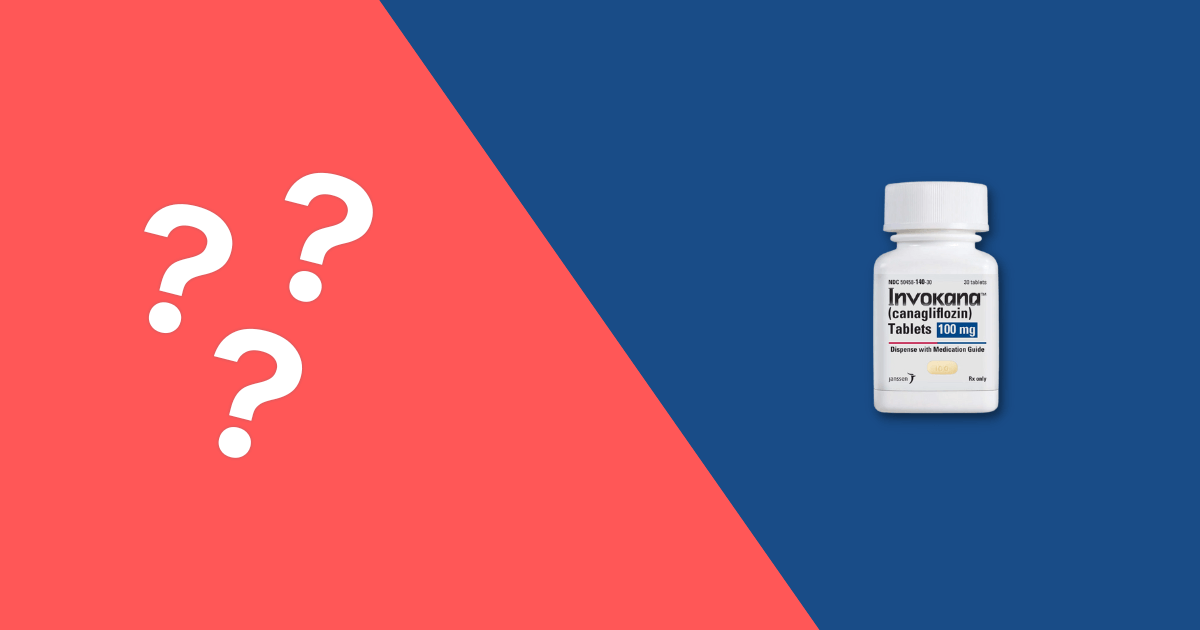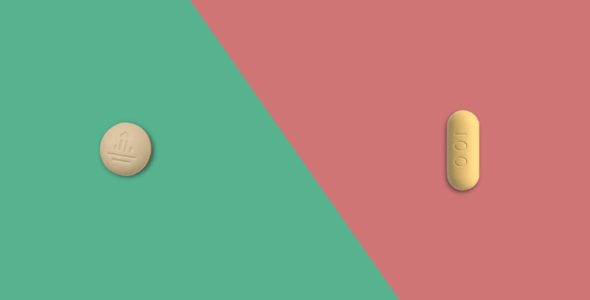Invokana alternatives: which other medications can I take?
Table of contents
Invokana is an FDA-approved (U.S. Food and Drug Administration) medication manufactured by Janssen Pharmaceuticals, Inc. It’s usually prescribed with exercise and changes to diet to help manage blood sugar levels. Invokana helps with type 2 diabetes by increasing the amount of sugar that’s removed from your body in your urine. This helps to keep your blood sugar levels lower. Invokana is taken orally as a tablet swallowed with water.
With type 2 diabetes, a lack of insulin, or insulin that no longer works effectively, causes you to have too much sugar in your blood. Having high blood sugar can make you feel hungry, thirsty, and tired. But, over time, high blood sugar can have more serious consequences. It can cause a range of health problems, including heart attacks, heart disease, strokes, and kidney disease.
Learn more about Invokana alternatives, including cheaper alternatives that could help you save money.
What is Invokana?
The active ingredient in Invokana is called canagliflozin. It helps to lower your blood sugar by blocking a process in your body that reabsorbs sugar (glucose) from your urine. This increases the amount of sugar in your urine and causes you to lose more sugar than you would normally do when you urinate. Used alongside exercise and improvements in your diet, and sometimes other diabetes medications, canagliflozin can help you maintain a lower blood sugar level.
Is Invokana a generic drug?
Invokana is not a generic drug, it is the brand name for a medicine manufactured by Janssen Pharmaceuticals, Inc. The active ingredient in Invokana is called canagliflozin, which is prescribed with exercise and changes to diet to help manage your blood sugar levels.
Are Jardiance and Invokana the same?
Both Jardiance and Invokana are FDA-approved diabetes drugs belonging to the drug class known as sodium-glucose co-transporter 2 inhibitors (SGLT 2 inhibitors). They are both diabetes medicines prescribed with changes in diet and exercise to help manage blood glucose levels.
The active ingredient in Invokana is called canagliflozin, and the active ingredient in Jardiance is called empagliflozin. As Jardiance and Invokana belong to the same class of drugs, they both work in the same way. Both drugs are used to reduce the risk of cardiovascular death in adults with type 2 diabetes mellitus and cardiovascular disease and to reduce the risk of cardiovascular death and hospitalization for heart failure in adults with heart failure.
Jardiance also has similar side effects, drug interactions, and contraindications to Invokana. The extent to which each of these drugs affects an individual will depend on a number of factors, including the condition being treated, the age, sex, and other medications being taken.
Farxiga vs Invokana
Both Farxiga and Invokana are FDA-approved diabetes drugs belonging to the drug class known as sodium-glucose co-transporter 2 inhibitors (SGLT 2 inhibitors). They are both diabetes medicines prescribed with changes in diet and exercise to help manage blood glucose levels. The active ingredient in Farxiga is called dapagliflozin which works in the same way as canagliflozin in Invokana and empagliflozin in Jardiance.
Farxiga, like Jardiance, also has similar side effects, drug interactions, and contraindications to Invokana, and as with Jardiance and Invokana, the extent to which its side effects affect an individual will depend on the condition being treated, the age, sex, and other medications being taken.
Are Januvia and Invokana the same?
Januvia contains sitagliptin as the active ingredient. It is a dipeptidyl peptidase 4 inhibitor (DPP-4 inhibitor) also used to treat type 2 diabetes, by helping to lower blood sugar levels when used in combination with exercise and changes to your diet. However, because Januvia belongs to a different class of medication, it has a different mechanism of action than Invokana and is not the same.
Januvia treats type 2 diabetes by helping to lower your blood sugar levels. When you digest food, your stomach and gut produce digestive hormones called GLP-1 and GIP. These hormones make your pancreas secrete insulin. As you continue to digest your food, the digestive hormones are broken down by an enzyme called DPP-4 to allow your levels of insulin to fall again.
Sitagliptin stops the DPP-4 enzyme from breaking down the digestive hormones. This keeps the hormones active for longer, making you produce more insulin, and lowering your blood sugar to normal levels.
Is weight loss a side effect of Invokana?
Invokana is not FDA-approved for weight loss, but it may help you lose weight as a side effect. On average Invokana helps patients lose 2 to 3 % in body weight. How much weight you lose may be influenced by your condition and other medication you may be using. You should speak to your doctor for medical advice if you are thinking about weight loss while using Invokana.
Can people who are diabetic take Invokana?
Invokana is an FDA-approved (U.S. Food and Drug Administration) medication prescribed with exercise and changes to diet to help manage blood sugar levels in patients with type 2 diabetes. Speak to your healthcare provider for more information about Invokana and being treated for diabetes.
Common side effects of Invokana
The most common side effects of Invokana in clinical trials include nausea, constipation, genital yeast infections, urinary tract infections, and hypoglycemia (low blood sugar). More serious side effects of Invokana include allergic reactions, kidney failure, serious urinary tract infections, Increased risk of bone fracture, and diabetic ketoacidosis, a potentially life-threatening condition where your body breaks down too much fat too quickly, causing you to produce high levels of blood acids called ketones.
Invokana drug interactions
Invokana can interact with a range of other medications. These include other antidiabetic drugs such as insulin or sulfonylureas, medications used to lower your blood pressure, anticonvulsants, treatments for HIV, rifampicin for the treatment of tuberculosis, cholestyramine used to reduce cholesterol levels, digoxin used to treat certain heart problems, blood thinners, and St John’s wort.
Invokana contraindications
You should not use Invokana if you are allergic to the active ingredient canagliflozin or to any of the other ingredients in Invokana, have type 1 diabetes, or are breastfeeding or are planning to breastfeed.
You should talk to your doctor before using Invokana if you have diabetic ketoacidosis (a diabetes complication that can cause rapid weight loss), have had a serious heart condition or a stroke, have severe liver or kidney problems, have had a lower limb amputation, are under 18 years of age, are pregnant or are trying to get pregnant, or are intolerant of some sugars.
Alternatives to Invokana
Natural alternatives to Invokana
Natural alternatives to Invokana may include non-prescription alternatives such as herbal or homeopathic supplements. It is important to be aware, however, that products sold or supplied as natural remedies for the treatment of diabetes will not have undergone the same rigorous testing prescription drugs have and may not be safe or effective when managing the symptoms of diabetes. Speak to a healthcare professional for medical advice about potential allergic reactions or drug interactions before using natural alternatives.
Changes in lifestyle, such as a low-carb diet, exercise, and weight loss, are the best natural way to help manage your diabetes. Speak to your doctor or dietitian for advice on creating your own personal diet plan.
Does Invokana have a generic alternative?
Effective generic alternatives to Invokana for the treatment of Type 2 diabetes include such drugs as metformin, glipizide, and glyburide. Generic alternatives are normally more cost-effective than branded versions of drugs.
Medically reviewed
A medical professional has reviewed this article.


Jamie Winn, PharmD
Jamie Winn, PharmD
Dr. Jamie Winn received his Doctor of Pharmacy in 2002 from the University of South Carolina College of Pharmacy, Columbia, SC. Jamie is a medical reviewer for NiceRx.


